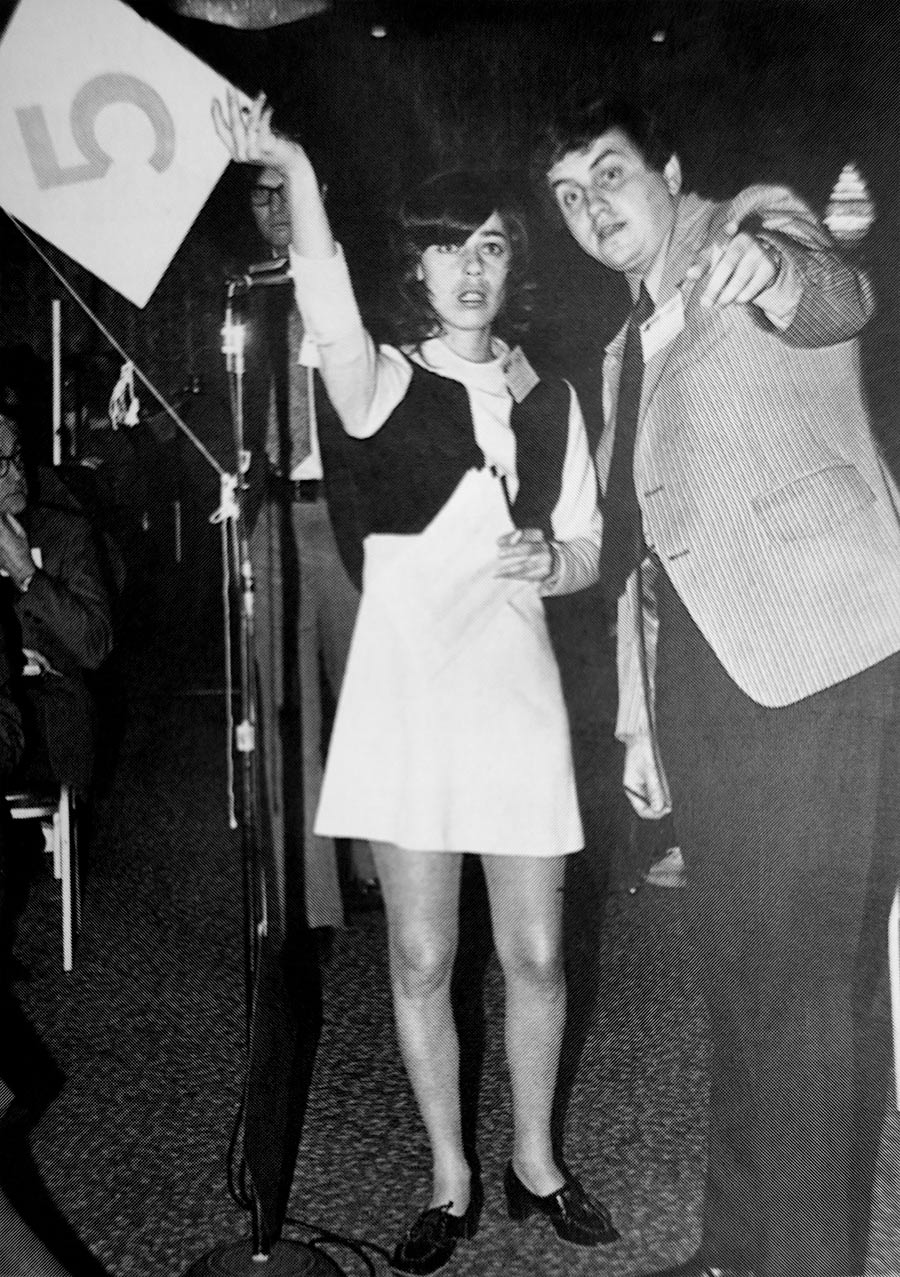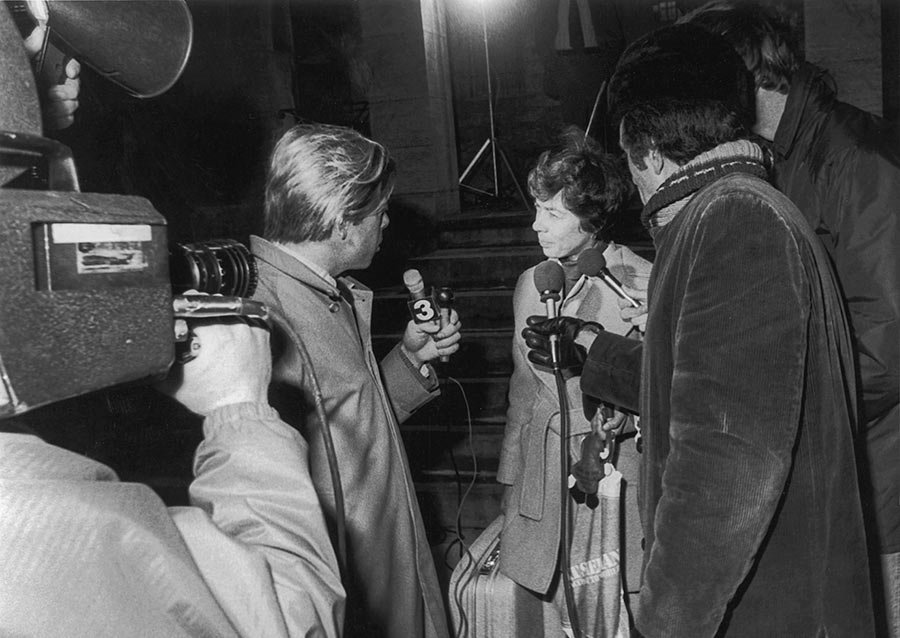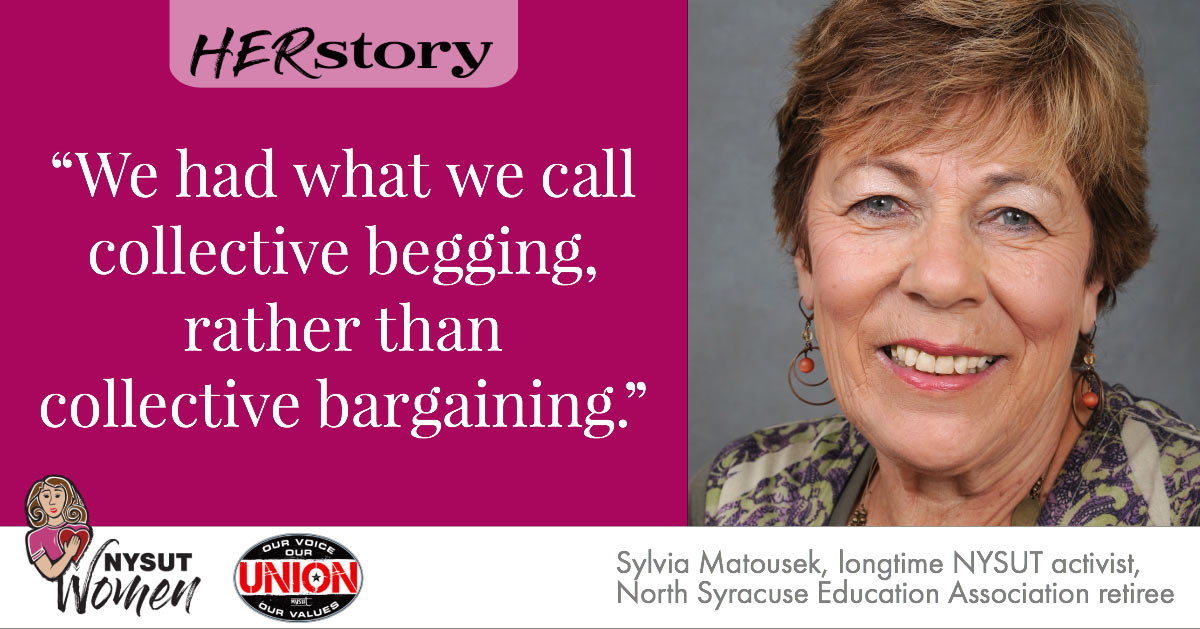Update: Friday, March 8, 2019
We are heartbroken to learn that NYSUT pioneer Sylvia Matousek passed away last night. Per the Central New York Labor Council [link], there are no calling hours, but a memorial for Sylvia will be planned in the future. More information is available here. Rest in power, dear sister Sylvia.
Well-behaved women seldom make history. As teachers unions rise up with strikes across the country, long-time labor activist Sylvia Matousek reflects on leading her local through a 10-day strike in the 1970s - which landed her in jail.
While women in the 1960s became vocal about their rights and freedom on the streets and college campuses, it was not so in the classroom for women teachers.
“We were taught to be kind of quiet. Kind of compliant,” said union maverick Sylvia Matousek of her early days teaching in North Syracuse.
“It took me awhile to realize I was discriminated against. It was not anything I was looking for,” said the retiree. “Women especially were very intimidated in those days.”
Pregnant teachers quickly got the bounce. Matousek said a woman was required to tell the superintendent as soon as she became pregnant.
“The big joke was that you’d call the superintendent at two o’clock in the morning ... and say, ‘Oh well, I think I just got pregnant,’” she was quoted in Teachers United: The Rise of New York State United Teachers.
Not only did women have to leave the classroom as soon as it was evident they were pregnant — but school administrators were under no obligation to rehire them after they left to have their children. Many lost their Tier 1 retirement benefits.
A graduate of the State University of New York at Oswego, Matousek was the first person in her family to graduate from college. Her father worked in a tannery. She began teaching in 1964, and her grandmother told her that while she’d never get rich working as a teacher, the family would be richer for having a teacher among them.
It wasn’t until five years after she first entered her second-grade classroom, chalk in hand, that the Taylor Law gave public employees the right to organize and elect union representatives. Before that, working conditions and benefits were at the whim of the school board. Matousek recalled that when she first began teaching, the pay was so low that some teachers were eligible for food stamps.
When she became involved in the North Syracuse Educators Association and then elected president in 1973, she said she was initially reticent to really speak out at district meetings, surrounded by men at the table.
“What was I but a woman from a small town playing ball in a big field?” Matousek recalled.
So when she began voicing her concerns about different issues — ranging from class size to salaries to the need for teachers to have input in what materials they were teaching — she recalled, “That’s when I got some tough messages. ‘Go back to teaching elementary.’ ‘Go back home and cook dinner.’”
But Matousek had the union for her mattock, and she just kept on digging in and chipping away at injustices.

She was there at the very beginning: Matousek at the mic with Neal Sorkin at NYSUT's first Representative Assembly in 1973.
Then came 1976, when the district tried to remove class-size clauses and gut other protections in the union’s contract, Matousek planted her feet as president of the NSEA. No. Nope. Not going to happen.
Teachers marched in front of school buildings and outside the homes of the superintendent and school board president. Despite what she described as “horrendous financial burdens” for members, they went on strike for 10 days – which meant losing two days pay for each day on strike, according to the penalties set by the Taylor Law. Some teachers were married to other teachers, so that meant their household lost 20 days of income.
“Our road to hoe wasn’t easy,” she said.
There was more. The union was fined $15,000 and NSEA leaders were jailed for seven days for violating the Taylor Law ban on strikes. Matousek has recalled the sounds of walking down dark corridors in the former Jamesville penitentiary with the clang of doors being locked behind her reverberating.
When she had to go for a medical exam at the jail, she said, “It felt like a Frankenstein movie. We emerged into a huge, bright room, like a warehouse. I thought: They’re going to drain every ounce of blood from me!” And no, she did not use her inside voice, as teachers often tell students to do. “ I screamed at the doctor: ‘If you lay a finger on me, I’ll sue you and the state of New York!’”

Sylvia Matousek, center, is interviewed by members of the Syracuse press. Matousek and five other members from the North Syracuse Teachers Association were sentenced to a week in the Jamestown penitentiary for staging a 10-day strike against their school district.
Matousek has kept her voice strident for years in her work as a unionist and a teacher, always on the side of worker’s rights. She served as a longtime NYSUT Board director, and in 2003 was honored with the Sandy Feldman “Not For Ourselves Alone Outstanding Leadership” award in honor of the former American Federation of Teachers president.
“I encourage all women … to understand they have valuable contributions to make,” she said at the time. “We are unionists. We need to make the union important to us. History told us we’ve had to choose as women: family, work or school. A woman’s place is in her union!”
Unionism in general has raised people up, Matousek said. “It has saved the lives of families, and provided public education. I will never be far from the union movement.”
For teachers, unionism has provided better salaries and benefits, professional development, workers rights, and healthier and safer working environments. When these rights are diminished, unionists go into action.

This firebrand recalls when the North Syracuse district hired five Title I teachers, all of them women, and did not consider them part of the bargaining unit. They were paid significantly less than the other teachers.
“They were all afraid to take action,” Matousek said. “We were able to get them on scale and get them benefits. Those are the kinds of things a union can do for you that you can’t do for yourself.”
Unions, Matousek added, are the underpinning to the middle class, which is very much under threat.
But she has been encouraged by what’s happening across the nation.
Educators are rising up and calling for better funding for schools, more services for students and better pay, with recent strikes in California, West Virginia, Colorado, Kentucky, Oklahoma and Arizona.
In Arizona, she had friends on the picket line who met teachers who had to get groceries from food banks because they didn’t make enough money to feed their families.
“It’s reprehensible,” she said. People have come to realize, she said, that “Big Daddy isn’t going to take care of them ... They better get out and picket.” She noted that it’s no coincidence that many of the uprisings have happened in right-to-work states.
“I think the union philosophy and the union presence in the northeast states is something people value,” she said.
Although it would be impossible to add up the hours Matousek has devoted to elevating the lives of women, of teachers, and of unionism, she said she has received far more than she has given.
“The two great career loves of my life are public education and unionism,” she said.
Looking back on her decades of activism, Matousek’s guiding philosophy has been quite simple: “Did we leave our students and colleagues in a better place than when we came in?”
For those who know Sylvia Matousek, the answer is a sonorous “yes!”